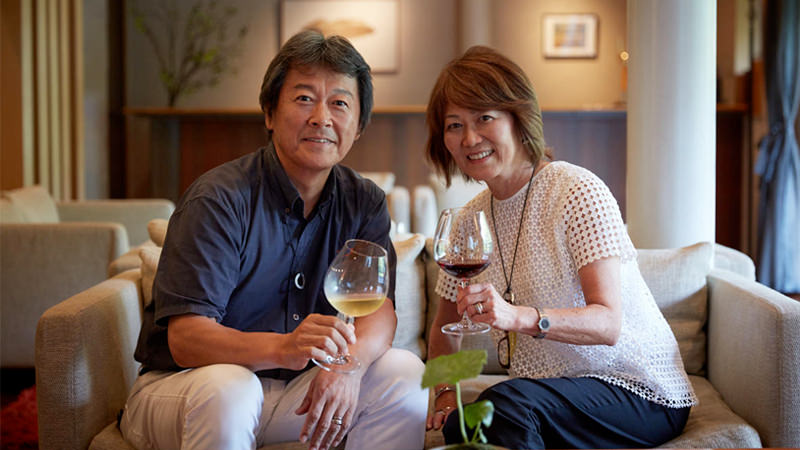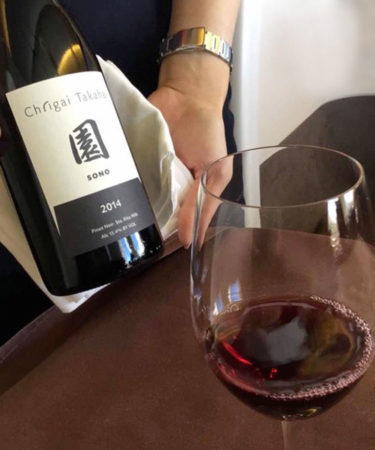If you want to taste an acclaimed California winery’s Chardonnays and Pinot Noirs, you’ll need plane fare and a passport.
Ch.igai Takaha was founded by husband-and-wife team Takahide and Miyoko Sugimoto in 2006. Short for Chateau Igai Takaha, the winery produces cuvées in partnership with Greg Brewer of Brewer-Clifton, and in collaboration with area labels Transcendance and Palmina.
The only catch? Ch.igai Takaha’s California wines are available exclusively in Japan — for now.

Takahide tasted wine for the first time at age 44. While pursuing a tech career in the Bay Area he fell in love with California wine, creating an online wine club and opening two wine-driven restaurants in Tokyo. Eventually, he decided to pursue production, beginning with a single barrel. Greg Brewer believed in Takahide’s vision and came on board as the label’s first partner.
“It’s super-synergistic between me, Taka, and Miyoko,” Brewer says. The threesome collaborate on blends for their Samurai Beauty Chardonnay and Sono Pinot Noir cuvées. Instead of taking a scientific approach to create a desired flavor profile, they aim for what Brewer calls an “emotional designation.” They prefer to be inspired by the character each wine communicates, allowing that to influence its profile and packaging. Miyoko designs the kanji, or characters, on the label art.
“Samurai, for example, is based on the duality of a sharp sword and a warm heart, so there’s always a pair of clones of Chardonnay in equal parts in that wine.” Brewer says, “One is Clone 4, which is known for being very precise and linear. It’s coupled with a clone called 76, which is … tender, round, and lower in acidity. That is the heart component of the blend.”
Clearly their approach is working. In 2011, Kenneth Gummere of Transcendence Wines and Palmina’s Steve Clifton began crafting wines for the Ch.igai label, followed by Paul Lato in 2012. In 2014, late-harvest specialist Roger Harrison joined the project.
Takahide’s next goal is to grow Koshu, an ancient white wine varietal grown primarily in Japan’s Yamanashi prefecture, in California. He may also turn his attentions from vineyards to rice fields; he is considering launching sake production to export worldwide. Like many California winemakers, his is an entrepreneurial spirit.
